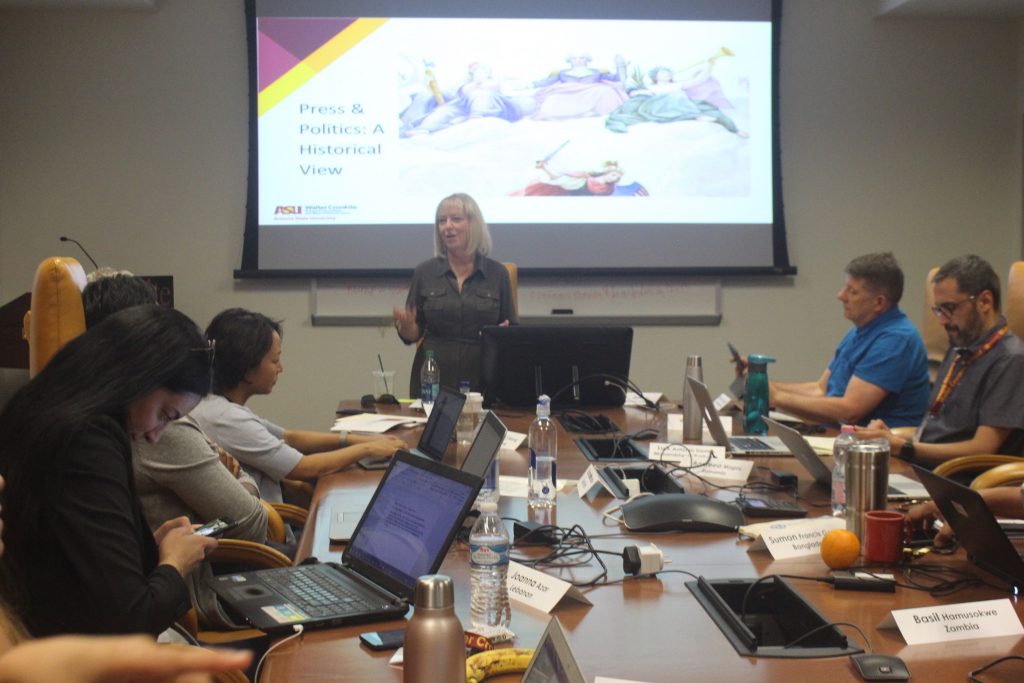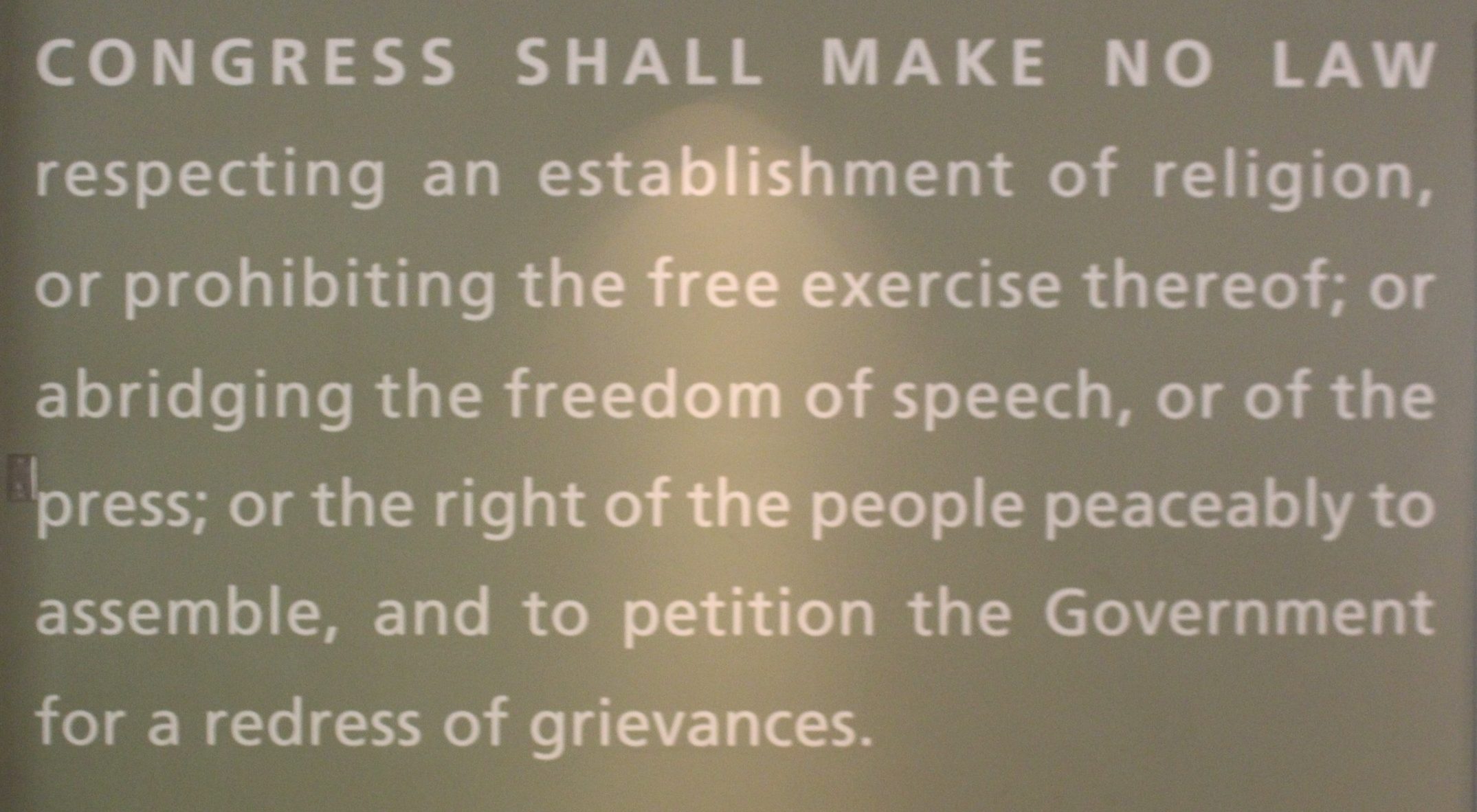If 17 journalists and scholars coming from 17 countries on four continents worldwide gather in room 444 at the Walter Cronkite School of Journalism and Mass Communication, is that evidence of a free world? Especially if today we are talking about freedom?
Probably.
“Freedom” is difficult to define and reach a common conclusion among different countries and ideologies. However, for reference, Reporters Without Borders (RWB) developed some criteria into the World Press Freedom Index to rank 180 countries all over the world. Among these, measuring the impact of the legislative framework governing news and information activities is a significant parameter.
That is the reason why we began the week on “democratic journalism” with the U.S. Constitution, press and politics with Mr. Daniel Barr.
On every floor of the Cronkite School, next to the elevator we usually take to room 444, is written the First Amendment of the U.S. Constitution:
Congress shall make no law respecting an establishment of religion, or prohibiting the free exercise thereof; or abridging the freedom of speech, or of the press; or the right of the people peaceably to assemble, and to petition the government for a redress of grievances.
United States Constitution
It was adopted on December 15, 1791, as one of the ten amendments that constitute the Bill of Rights, guaranteeing basic individual protections, such as freedom of speech and religion.

However, the boundary between “limit the freedom” and “being responsible for the abuse of that right” is ambiguous. Different countries and even different states interpret the norms in different ways. It may lead to opportunities for vitriolic political speeches and fake news coming out more and more, while penny press-style editors seek to stand out by separating themselves from political parties, according to Ms. Kristin Gilger, Cronkite School Senior Associate Dean.
In that context, improving the quality of information market at the same time brings “freedom of the press” into question… one that we will have to answer tomorrow, this week and in the future.
